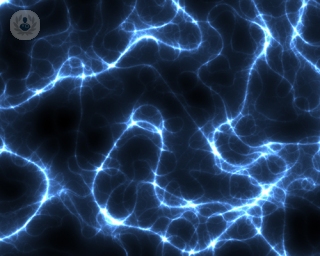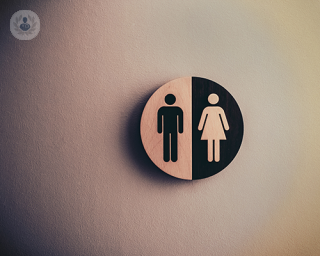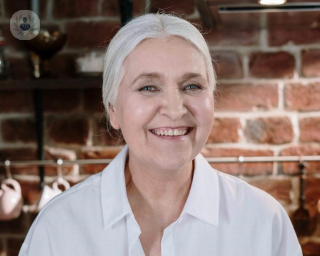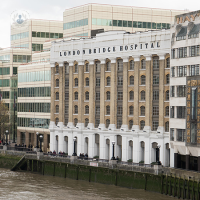Overactive bladder
Mr Marcus Cumberbatch - Urology
Created on: 03-23-2018
Updated on: 07-19-2023
Edited by: Conor Lynch
What is an overactive bladder?
An overactive bladder (OAB) is a condition where the patient frequently experiences a sudden, and often urgent need to urinate. These urges can occur at any time, night or day, and can have a serious impact on a person’s life, including their self-esteem and social life. In a significant number of patients, overactive bladder comes coupled with a loss of urinary control, leading to involuntary urination (also known as urge incontinence), but many patients only experience the need to urinate. Overactive bladder is a symptom, rather than a diagnosis, and can be caused by a number of other conditions.

What are the symptoms of an overactive bladder?
If you have an overactive bladder, you may experience symptoms such as:
- The sudden urge to urinate, which is often intense and can be difficult to control
- Frequent urination – you may need to go eight or more times in 24 hours.
- Urge incontinence – involuntary urination following the urgent need to do so.
- Nocturia – waking two or more times in the night to urinate.
Although not all patients lose control of their bladder, the sudden urges to urinate and frequent toilet visits can severely disrupt their lives, waking them up at night, and affecting their social lives.
What causes an overactive bladder?
Urination is controlled by the muscles of the pelvic floor and the bladder. Normally, when the bladder becomes full, nerve signals are sent to the brain, which triggers the sensation that you need to urinate. When you are ready to urinate, the pelvic floor muscles and the sphincter in the urethra relax, while the bladder muscles contract to force urine out.
However, in the case of an overactive bladder, the bladder muscles contract involuntarily, creating an urgent need to urinate. This can occur even when the bladder is not full. There are a number of conditions that are thought to contribute to this problem:
- Abnormalities in the bladder, e.g. bladder stones, tumours, etc.
- Diabetes
- Neurological problems, e.g. MS, stroke, etc.
- Medications that cause you to produce a lot of urine, or that must be taken with plenty of fluid.
- Enlarged prostate
- Constipation
- Previous operations to treat other forms of incontinence
- Cognitive decline as you get older can affect communication between the bladder and the brain.
- Excess intake of alcohol or caffeine.
How can it be prevented?
As there are many possible causes, and given that sometimes the cause cannot be identified, there is no sure-fire way of preventing an overactive bladder. The best way to go about it is to maintain a healthy lifestyle:
- Limit alcohol and caffeine intake
- Maintain a healthy weight
- Daily physical activity and regular exercise
- Manage conditions like diabetes that can cause OAB symptoms
There are also pelvic floor exercises that can help you to strengthen and control these muscles.
What is the treatment for an overactive bladder?
It is important to remember that an overactive bladder is not simply a normal part of ageing, or of having an enlarged prostate, and if you are experiencing symptoms, you should see a doctor, who will take a medical history, and may perform urine tests, physical examinations, and/or neurological tests to determine the cause. There are a number of treatment options, although the first line of treatment is usually behavioural:
- Pelvic floor muscle exercises – a doctor or physiotherapist will instruct you on how to do these.
- Scheduling toilet trips can help your body get into a familiar, controlled pattern
- Bladder training – this is only possible when you are able to control your pelvic floor muscles. It involves training yourself to hold urine in when you feel the urge, and slowly building up the time you wait before going to the toilet.
- Achieving a healthy weight – if you are overweight, losing that weight can help alleviate symptoms
If behavioural treatments are ineffective, or if both doctor and patient decide they are not appropriate for the case, there are other options. Depending on the patient, the doctor may recommend medication, bladder injections, nerve stimulation therapy, or even surgery (although this is usually a final option for extreme cases).
Which specialist treats an overactive bladder?
A urologist can treat an overactibe bladder.

















